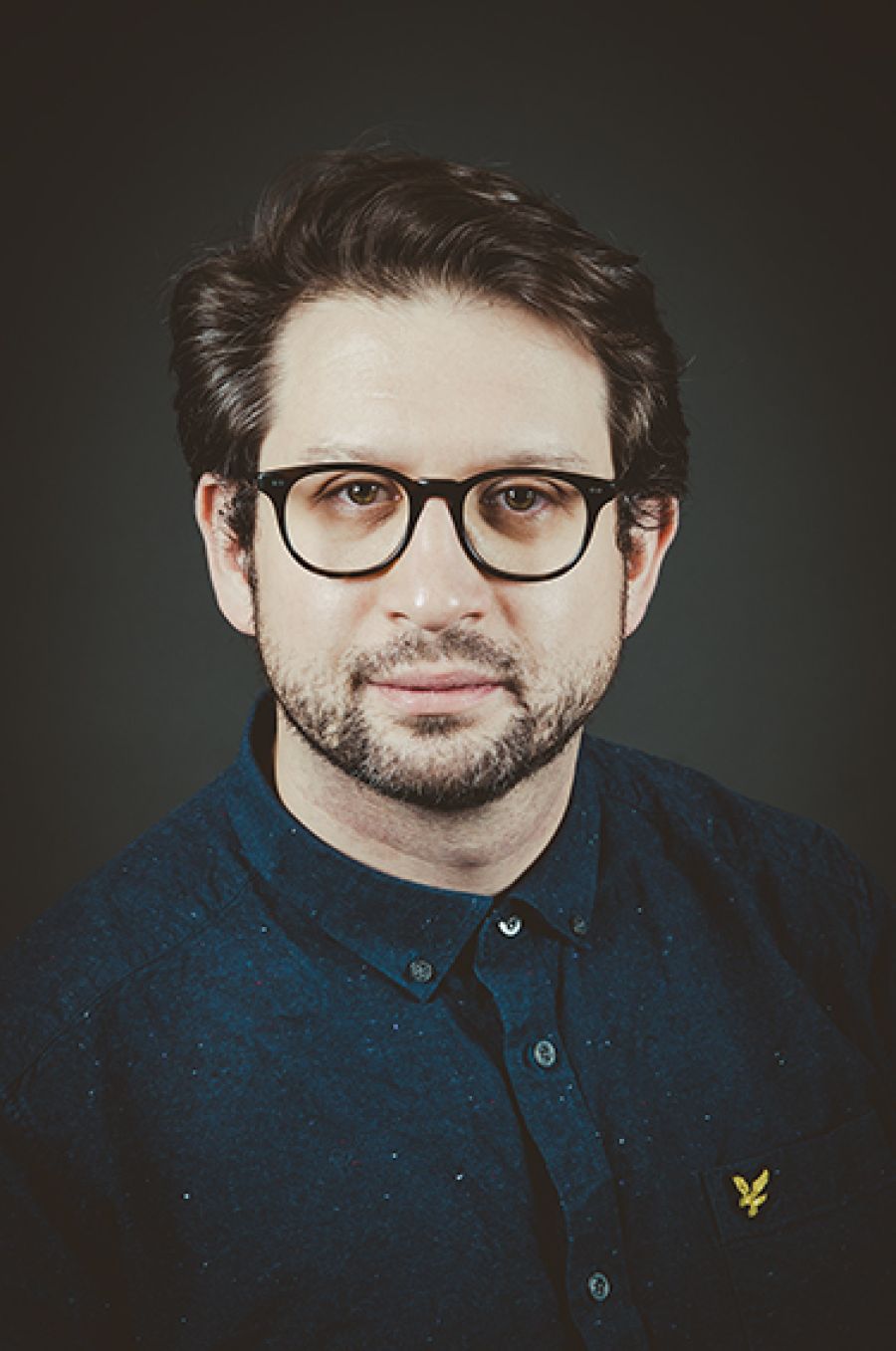In the spirit of friendship - Deutsche Oper Berlin
In the spirit of friendship
It was to be the fifth production at the Deutsche Oper Berlin – then Graham Vick unexpectedly died. Sam Brown is now bringing the project to completion
The first production by Graham Vick that I ever saw changed my life. You have to remember that he held two roles: Firstly, he was a director in the most prestigious temples to high culture, such as the Scala in Milan or the Deutsche Oper Berlin. Secondly, he was the founder of the Birmingham Opera Company productions with amateur performers. Often in warehouses, abandoned factories, neighbourhoods that had seen better days. One time I entered this draughty hangar, so gigantic that jumbo jets could have been built in them, full of regular people from Birmingham – and suddenly they started singing the opening chorus to Verdi’s OTELLO. It was unbelievable.
Even though I only assisted Graham, he was always a friend and mentor to me. We were still in touch shortly before he passed. I was asking for advice for my production of COSÍ FAN FUTTE, his favourite opera. His last message to me was an apology: “I’m in the hospital, Sam. I’m sorry that I’ll miss your COSÍ – but I’m going to miss a whole lot else, too!” He was someone I could always rely on, who helped me with his knowledge and experience, and someone you could go to with any problems you may have.
To be quite honest, I was hesitant when I got the offer to take on his production of Tchaikovsky’s PIQUE DAME, which, unlike other projects, wasn’t being cancelled. I was asked to produce the piece together with Graham’s long-time stage and costume designer Stuart Nunn, as well as his widower, choreographer Ron Howell. It felt not only like an incredible challenge, but also a great privilege. Ultimately, I thought that Graham had given me so much, so maybe this is an opportunity to give him something back.
I wouldn’t say that we have the same style, but I also got a lot of ideas from him when it comes to the methodology of directing. At first I still believed that opera direction means thinking of the greatest possible idea. Graham had a different approach: He made as many decisions in advance as he could. He encouraged me to be in the room with the people first so that I could get a feel for their energy.
That’s another reason why I took on PIQUE DAME. I knew that the framework that he’d created provides a lot of room for conceptual freedom. Of course, it’s still a challenge, but Stuart Nunn’s multifaceted stage design provides a wonderful range of opportunities to bring the huge tableaux and the intimate scenes to life. My own artistic ideas can come alive. It may sound dramatic, but Graham’s ideas for PIQUE DAME outside of the equipment died with him. As a director, I have to walk my own path.

I first became familiar with PIQUE DAME as a director’s assistant, and was immediately head over heels for the work. Tchaikovsky had me in the palm of his hands, just as Hermann’s gambling addiction had a hold of him. I saw in it a perfect connection between text and music: The dramatic sounds of this rich orchestra unwaveringly drive the narrative forward, while the characters are captivatingly brought to life through music. Having the opportunity to produce the opera myself is, despite the tragic circumstances, a fifteen-year dream come true.
I feel that PIQUE DAME is Tchaikovsky’s most personal opera, although it was based on a work by Alexander Pushkin. Letters have revealed how much Tchaikovsky identified with the main character, Hermann. Hermann feels as though he doesn’t belong anywhere, the only person to not be invited to the party. But the women in the opera are lonely in their own way, too. The opera is the story of an outsider. Pyotr I. Tchaikovsky and his brother Modest, who also worked on the opera, will have been familiar with this as homosexual men living in that time. I also think that this work tells us a lot about Russian society that can help us better understand our present day. Contrary to the Pushkin version, the motivations of the characters in the opera are often less clear, which provides room for ambiguity. Does Hermann love Lisa or is she nothing more than a tool for him? Is Lisa a helpless victim, or does she see in Hermann a way to break out of her gilded cage? Is the mysterious secret of the cards real, or is it nothing more than a product of Hermann’s mania? Tchaikovsky plays with his cards close to his chest, and I will do the same.
Written by Patrick Wildermann, who writes about theatre, culture and social issues for Tagesspiegel, the Galore magazine etc.
Images at the top: After a decades-long absence, Graham Vick returned to the Deutsche Oper Berlin with his production of TRISTAN AND ISOLDE in 2011. He demonstrated his mastery of conception and visualisation pertaining to outsiders in particular with his 2016 production of MORGEN UND ABEND, Georg Friedrich Haas’s fisherman drama, as well as his 2017 production of Britten’s DEATH IN VENICE







